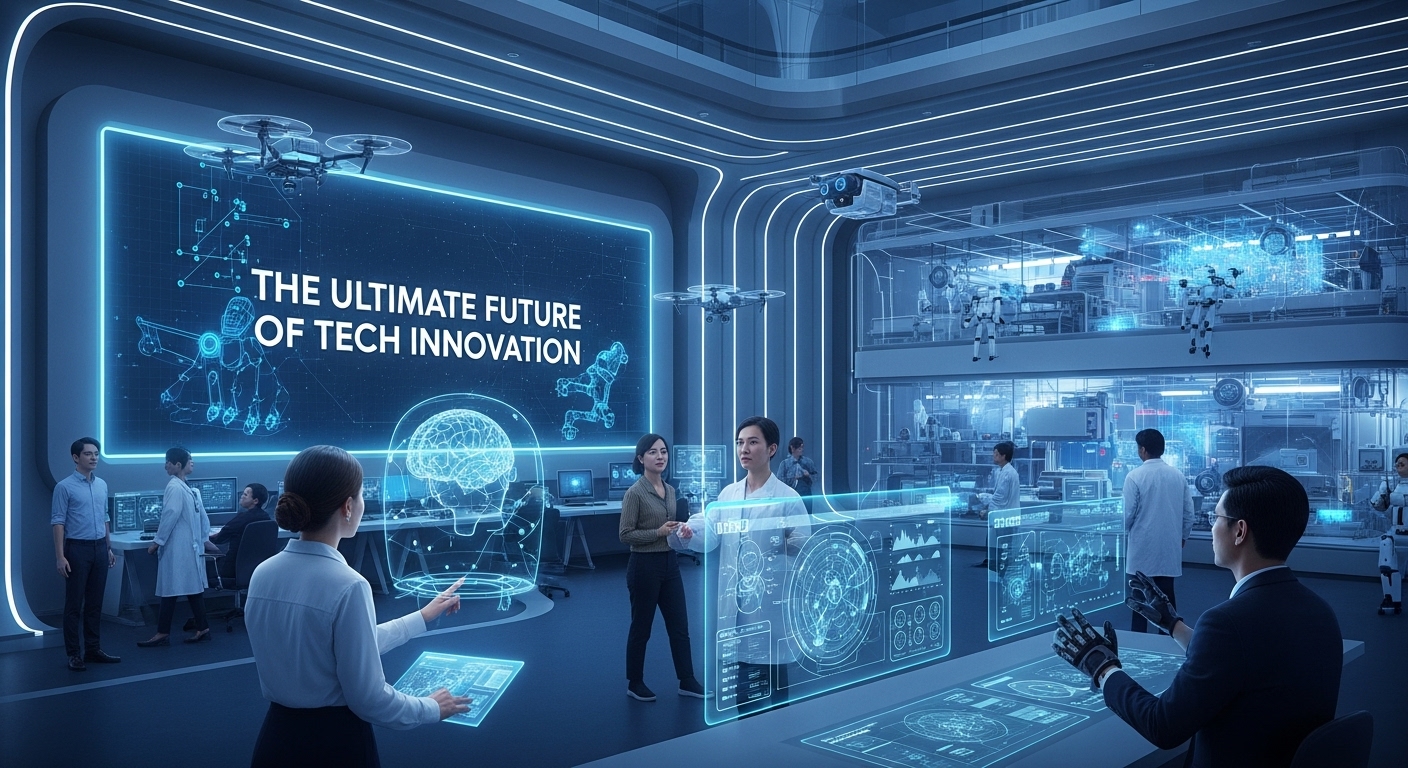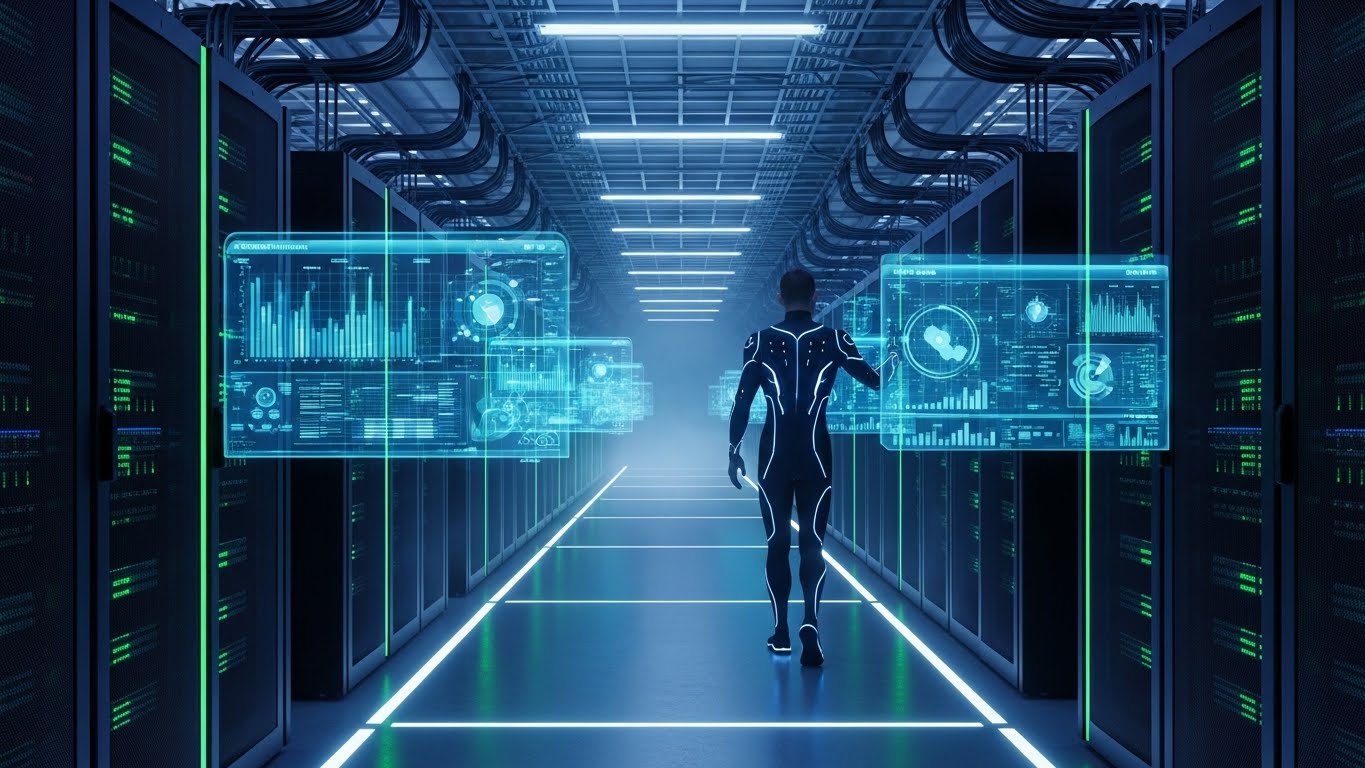Technology is the lifeblood of modern society. From the devices we carry in our pockets to the infrastructure that powers entire nations, technology has become indispensable in shaping the way we live, work, and communicate. Its rapid evolution over the past few decades has transformed industries, created new opportunities, and presented unique challenges. Understanding the journey of technological development and its profound impact is essential to appreciating the present and preparing for the future.
The Historical Progression of Technology
The story of technology is essentially the story of human ingenuity. From the invention of the wheel to the discovery of electricity, early innovations laid the foundation for modern technological advances. Mechanical tools allowed humans to amplify their physical capabilities, while inventions such as the printing press democratized knowledge and accelerated intellectual progress.
The industrial revolution marked a significant turning point in the evolution of technology. Machines powered by steam and later electricity transformed manufacturing, transportation, and agriculture. Industries could scale production like never before, leading to urbanization, economic growth, and new societal structures. This era demonstrated the potential of combining scientific knowledge with practical engineering to reshape everyday life.
The 20th century brought the digital revolution, defined by the rise of electronics, computing, and telecommunications. The development of microprocessors, integrated circuits, and personal computers turned the world into a connected ecosystem. Innovations in networking and the internet era ushered in unprecedented access to information, allowing individuals and businesses to interact and collaborate globally.
The Role of Computing in Modern Life
At the heart of modern technology is computing. Computers are no longer limited to specialized workplaces or scientific labs; they are omnipresent. From laptops and smartphones to embedded systems in cars and appliances, computing technology permeates nearly every aspect of life.
Computing has enabled automation on a scale previously unimaginable. Tasks that once required hours of manual effort can now be accomplished in seconds. Industries such as finance, healthcare, logistics, and entertainment rely heavily on computational power to operate efficiently. Advanced algorithms analyze massive datasets, guiding decision-making processes and predicting trends.
Artificial intelligence (AI) and machine learning (ML) represent the next frontier of computing. These technologies mimic human intelligence, enabling machines to learn from data, recognize patterns, and make decisions. AI is already embedded in many aspects of daily life, from virtual assistants to recommendation engines, medical diagnostics, and autonomous vehicles. Its integration promises further transformation, particularly in areas requiring predictive insights and real-time responsiveness.
Connectivity and the Internet Revolution
The internet is arguably one of the most transformative technologies in human history. It has connected billions of people worldwide, creating a global community capable of instant communication and collaboration. Beyond social interaction, the internet has revolutionized commerce, education, entertainment, and governance.
High-speed broadband, mobile networks, and wireless technologies have made digital access ubiquitous. Cloud computing has further amplified the internet’s impact by offering scalable resources and storage accessible from anywhere. Businesses no longer need to invest heavily in physical infrastructure; they can leverage cloud services to deploy applications, store data, and analyze information in real time.
The proliferation of the Internet of Things (IoT) represents another step in connectivity. IoT devices collect and exchange data, enabling smarter homes, cities, and industries. Sensors embedded in infrastructure, vehicles, and wearables provide insights that improve efficiency, safety, and quality of life. The convergence of IoT with AI and big data analytics is driving innovations in predictive maintenance, energy management, healthcare monitoring, and supply chain optimization.
Mobile Technology and Its Ubiquity
Mobile technology has redefined accessibility and convenience. Smartphones and tablets have become personal hubs, integrating communication, entertainment, productivity, and commerce into single devices. The portability of mobile devices has enabled work and leisure to transcend physical locations, creating a digitally interconnected world.
Mobile applications have transformed industries. Ride-sharing, food delivery, telemedicine, and mobile banking are just a few examples where apps have streamlined services and expanded reach. Mobile technology has also facilitated social movements and grassroots initiatives by providing platforms for expression, organization, and awareness.
The development of 5G networks is set to enhance mobile connectivity dramatically. With higher bandwidth, lower latency, and the ability to support massive device networks, 5G will unlock applications in augmented reality (AR), virtual reality (VR), autonomous transportation, and smart infrastructure. The expansion of mobile technology continues to blur the lines between digital and physical experiences.
The Transformation of Communication
Communication technology has undergone a profound transformation. Traditional forms of communication, such as letters and landline phones, have largely been supplanted by digital alternatives. Instant messaging, video calls, and social media have made interactions faster, more convenient, and often more visual.
The rise of digital platforms has also created new modes of collaboration. Remote work, virtual teams, and globalized organizations have become viable because technology enables seamless communication and real-time coordination. Tools that combine messaging, video conferencing, and document sharing have redefined workplace dynamics, breaking down geographical barriers and fostering productivity.
Moreover, communication technology has reshaped cultural and societal dynamics. Information spreads rapidly across networks, influencing public opinion, political discourse, and social trends. While this democratizes access to knowledge, it also introduces challenges such as misinformation and privacy concerns, highlighting the dual-edged nature of technological progress.
Data and Its Central Role
Data is the fuel driving modern technology. Every interaction, transaction, and process generates data that can be captured, analyzed, and leveraged to improve outcomes. The exponential growth of data has given rise to new technologies for storage, processing, and analysis. Big data analytics, data mining, and predictive modeling enable organizations to extract actionable insights from vast datasets.
In business, data informs strategy, enhances customer experiences, and drives innovation. In healthcare, it supports personalized medicine, early diagnosis, and epidemiological research. In transportation, it optimizes routes and improves safety. The ability to harness data effectively is a defining characteristic of successful organizations in the digital age.
However, the proliferation of data also raises ethical and security considerations. Data privacy, cybersecurity, and regulatory compliance have become critical concerns. Organizations must balance innovation with responsible stewardship of sensitive information to maintain trust and avoid misuse.
Artificial Intelligence and Machine Learning
Artificial intelligence and machine learning are shaping the future of technology in profound ways. AI encompasses a range of techniques that allow machines to perform tasks typically requiring human intelligence. These include natural language processing, computer vision, robotics, and expert systems.
Machine learning, a subset of AI, focuses on training algorithms to learn patterns from data and make predictions. Deep learning, which utilizes neural networks with multiple layers, has enabled breakthroughs in speech recognition, image classification, and autonomous systems.
The applications of AI are vast and growing. In healthcare, AI assists in diagnostics, drug discovery, and patient monitoring. In finance, it automates trading, fraud detection, and credit scoring. In manufacturing, AI optimizes production lines, predicts maintenance needs, and enhances supply chain efficiency. The integration of AI into daily life is accelerating, promising unprecedented convenience and efficiency while raising questions about ethics, bias, and employment.
Emerging Technologies Shaping the Future
Several emerging technologies are poised to redefine industries and societies. Quantum computing, for instance, promises to solve complex problems beyond the capabilities of classical computers, with applications in cryptography, materials science, and optimization. Its development is still in early stages, but its potential impact is significant.
Blockchain technology is another transformative innovation, offering decentralized, transparent, and secure ways to manage digital transactions. Beyond cryptocurrencies, blockchain is being explored for supply chain management, digital identity verification, and smart contracts. Its ability to ensure data integrity and reduce intermediaries has wide-ranging implications.
Augmented reality (AR) and virtual reality (VR) are changing the way people interact with digital content. AR overlays digital information onto the real world, enhancing experiences in retail, education, and industrial training. VR immerses users in entirely digital environments, enabling simulations, entertainment, and collaborative experiences. These technologies are blurring the boundaries between the physical and digital worlds, opening new avenues for creativity and engagement.
Technology in Healthcare
Healthcare has been revolutionized by technology. Medical imaging, electronic health records, telemedicine, and wearable devices have improved diagnosis, treatment, and patient care. Advanced analytics and AI assist clinicians in making informed decisions, reducing errors, and personalizing care.
Telemedicine has become especially significant in extending access to healthcare services, allowing patients to consult doctors remotely. Wearables monitor vital signs, track fitness goals, and detect anomalies in real time. Robotics in surgery enhances precision and reduces recovery times, while biotechnology advances in genomics and personalized medicine promise more effective therapies tailored to individual patients.
Technology is not just improving healthcare efficiency; it is transforming the entire paradigm of preventive and proactive health management. Patients are empowered with tools and information to take charge of their well-being, potentially reducing the burden on healthcare systems and improving overall quality of life.
Technology in Education
Education has been profoundly influenced by technology. E-learning platforms, digital textbooks, and virtual classrooms have made learning accessible to a global audience. Students can now access resources, attend lectures, and collaborate with peers across geographical boundaries.
Artificial intelligence and adaptive learning systems personalize educational experiences, catering to individual learning styles and pacing. Virtual and augmented reality create immersive learning environments, enabling hands-on experiences in fields like science, engineering, and history. Technology has also enabled massive open online courses (MOOCs), democratizing education and offering opportunities to lifelong learners worldwide.
Furthermore, technology equips educators with tools to assess performance, track progress, and implement data-driven teaching strategies. The integration of technology in education fosters critical thinking, creativity, and digital literacy—skills essential for thriving in a technology-driven world.
Ethical Considerations and Challenges
While technology offers immense benefits, it also poses ethical challenges. Privacy concerns, cybersecurity threats, and the potential for misuse of AI and data are pressing issues. The speed of technological advancement often outpaces regulatory frameworks, creating gaps in governance and accountability.
Bias in AI algorithms can perpetuate social inequalities if not carefully addressed. Automation may displace jobs, necessitating strategies for workforce reskilling and social adaptation. Moreover, the environmental impact of technology, including electronic waste and energy consumption, demands sustainable practices and responsible innovation.
Navigating these challenges requires collaboration between technologists, policymakers, businesses, and society. Ethical frameworks, transparency, and public engagement are essential to ensure that technology benefits humanity without compromising security, fairness, or environmental integrity.
The Future of Technology
The future of technology promises further integration into every facet of life. Emerging trends such as AI-driven automation, immersive experiences, advanced robotics, and interconnected smart systems will continue to redefine human experiences. The convergence of technologies will create ecosystems that are intelligent, adaptive, and responsive.
Human-centered design and ethical innovation will become critical as society grapples with the implications of increasingly capable technologies. Collaboration between disciplines, industries, and nations will shape the responsible deployment of technology for global benefit.
Ultimately, technology is not just about machines, software, or infrastructure—it is about human potential. The choices we make today in developing, regulating, and integrating technology will determine how it shapes our societies, economies, and lives in the decades to come.
Conclusion
Modern technology is a double-edged sword, offering transformative benefits while presenting complex challenges. Its evolution from mechanical tools to intelligent systems has redefined human capabilities and societal structures. Computing, connectivity, AI, mobile devices, and emerging technologies are central to this transformation, driving innovation across industries and improving quality of life.
At the same time, ethical considerations, privacy concerns, and environmental impacts underscore the need for responsible and sustainable technological development. By embracing innovation thoughtfully and collaboratively, humanity can harness the power of technology to create a future that is not only advanced but also equitable, secure, and sustainable.
The journey of technology is far from over. As we continue to innovate, explore, and integrate new ideas, the possibilities are limitless. Understanding the role of technology in shaping our world is essential—not just as consumers or creators, but as stewards of the future we are building together.



